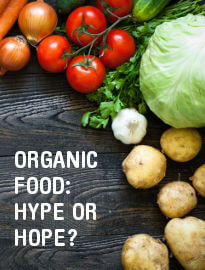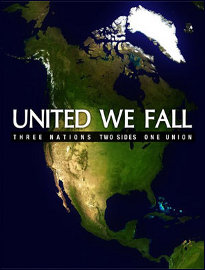Real Value
How do you determine the true value of a product or service? Is it solely based on the profit motive, or should its impact on the global good also play a major role in the equation? The feature-length documentary Real Value profiles business leaders who have seen their profits rise after taking measures to enhance their standards of sustainability.
The filmmakers focus on efforts currently taking place in North Carolina, but the lessons each subject imparts can be applied anywhere in the United States or around the world.
At Piedmont Biofuels, workers collect used fats, oils and greases and transform them into fuel. Demand for their product is at an all-time high, and they are blessedly free of the shackles and curses associated with the big oil industry.
In another segment, the president of a custom T-shirt wholesale business outlines the steps he took after the North American Free Trade Agreement essentially gutted his enterprise. He decided to place ethical responsibility above concerns for the bottom line, and integrated wind, solar and biofuel technologies into his business model. By embracing these sustainability measures, his business has grown both in profit and in its standing within the community.
The spirit of activism and environmental responsibility drives every facet of operations at Sow True Seed in Asheville. The owner of this small business fights for the rights of all people to know where their food comes from. She teaches interested parties in her community how to plant seeds, empowers others to grow their own healthy food, and donates leftover inventory to local schools and support groups.
These values also extend into workplace practices that promote a shared sense of respect, teamwork and purpose among each employee.
Interspersed between these personal profiles, viewers gain big-picture insights from panel of experts, including Dan Ariely, a Professor of Psychology & Behavioral Economics at Duke University and the founder of the Center for Advanced Hindsight.
The fascinating subjects of Real Value are relatable and inspiring entrepreneurs. Their means of driving profits through social responsibility are well within reach for the owners of all businesses large and small.
Directed by: Jesse Borkowski




@John & @sheila: If you can believe the movie Black47, which I tend to, the potato crop failed but not the grain, which was shipped to those in England with money rather than fed to the poor and starving in Ireland.
Who decides "value"? The goal of collectivists (progressives, socialists, communists, etc) is to keep playing your emotional violin strings with limited information propaganda until you vote for them and then THEY will decide what YOU value instead of you. They have already stated for years that you should jam your family into a econo box (tiny, light weight, tin can of a car) to save the world ...and hope some big fancy car, those telling how to live are driving, doesn't kill you all. Which would make them happier since they have a goal of eliminating most of the population because they are "useless eaters."
Freedom to value what I value is what I care about. Its fine if these people can make a go of it. And fine if they inspire others to find better ways of doing things. Just as long as they don't try to force me to ...get on a solar powered moving sidewalk in line for the guillotine --To save the planet from the virus of people, as they claim. You first Mr./Ms. hypocrite.
Clearly, a great many people don't "value" a $30 t-shirt no matter how its made.
I have to correct Sheila on the Irish potato famine. (I am Irish). Probably zero potatoes were exported by British landlords (the famine was caused by the failure of the potato crop). It was a searing experience because it brought home to us, as a nation, the consequences of not looking economic and political realities in the eye. It is unimaginable that such a famine would have been tolerated within a day's ride of London, and yet, in theory, we were all part of the same United Kingdom.
Misleading title, more about a few small Hippy "feel good" companies than economics.
Love the $100 Polo Ralph Lauren shirt made in some 3rd world country on the guy being interview'ed.
Those TS design T shirts are $30 I'm sure there's a good profit margin there.
Read, The Web of Debt by Ellen Hodgson Brown, then read, The Pulic Bank Solution by the same author.
I do not recommend this documentary. Poor approach from economical perspective. Movie purports the idea of "value" and defines it from its wishful thinking viewpoint. Negates profits, dissolves it from value and even tries to contradict those terms. Lack of analysis, only shows one side of the coin. Movie plays with audience emotions, psychology and guilt - a simple level of marketing. Social responsibility, protecting environment are totally misunderstood here.
It was a good doc and important things are being said but with dramatic violins and piano in the background THE ENTIRE TIME. I couldn't handle and bailed half way through.
Has Jeff Bezos of Amazon.com watched this documentary? I doubt it. By far the most evil, wicked, mean-spirit psychopathic human being one earth.
Amazon is know for the brutal mistreatment of their workers. Not just warehouse workers, both office and code writers are brutally and psychologically mistreated. Reason why Amazon depends on Indians workers for their call centers and H1-B visa holder as code writers to do the cheap, dirty work. They mistreat and are unfair to affiliates and abusive to third party sellers. Amazon voted worse workplace seven years in a row, low pay and toxic work culture. All created by sick sociopath Jeff Bezos.
Good doco, borderline philosophy doco. I guess makes you question how much peoples values have been distorted by intense mainstream media propoganda and aligned to profiteering corporatist agendas.
This is a very valuable documentary on so many levels. I could get behind all these people. They are good for our planet.
excellent ...just a comment on the Irish famine comments at 25:54... the general consensus in Ireland is the "Irish famine" was mostly caused by the British landlords exporting the viable potato crop for profit ... which incidentally plays right into the ethos of the film .... what value is...